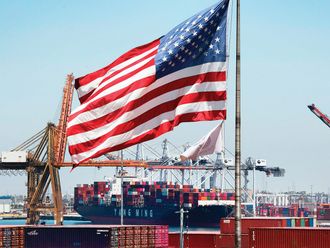
Since the beginning of the protest movement in Syria five months ago, Turkish-Syrian relations have turned increasingly sour, stumbling from one problem to another.
On Tuesday, Ankara sent its foreign minister to Damascus to deliver what has been described as a last warning to the Syrian government that it must reverse its heavy-handed approach in dealing with the protest movement and that it must introduce far-reaching reforms. Turkey has repeatedly stated that the crisis in Syria is affecting its national security and that it cannot sit idle watching the regime use disproportionate force to quash the largely peaceful protests.
The current crisis presents a huge challenge for both Turkey and Syria, which seem to have in recent years overcome tremendous difficulties in their bilateral relationship. A few months ago, everybody in Damascus and Ankara was proudly talking about a diplomatic miracle that brought the two countries very close. In light of the longstanding animosity that marked the relationship, the improved ties were described as a success story; and it was.
Syrian-Turkish rapprochement began only in 1998 when the two countries singed a security pact following the confrontation over the PKK issue, which brought them close to all-out war. But relations improved dramatically only when the Islamist-leaning AKP came to power in Turkey following the November 2002 general elections. This new trend in Syrian-Turkish relations came as a surprise for those who have long argued that Turkey and Syria, taking into account their geostrategic dispositions and divergent interests, cannot develop normal relations. Indeed, this argument is important if we consider the history of the two countries, their differences and the politics of the Middle East.
For decades Syria and Turkey have tried to contribute to each other's security dilemmas at three levels: global, regional and domestic. Globally, the two countries, motivated by fears and anxiety over their own security, allied themselves with the two different camps in the Cold War divide. Turkey joined Nato in 1952, whereas Syria became the USSR's major ally in the region. This situation reflected higher levels of conflict between the two superpowers in a region in which both the US and the former Soviet Union pursued influence and claimed interests.
Regionally, Damascus and Ankara have tried to isolate and intimidate each other by forming alliances with neighbouring states. Syria established close relations with Iran, Armenia, Russia, Bulgaria, Greece and Cyprus - all of which were seen as adversaries by Ankara; whereas Turkey built a strategic military alliance with Israel and strong relations with Jordan. Domestically, the two countries have tried to undermine the other regime by supporting domestic rebels. Turkey supported the Muslim Brotherhood against the Damascus; whereas Syria supported the PKK against the Ankara. In brief, the two sides have had complicated problems, lack of trust and a long history of bitter disappointments.
But, after the 1998 crisis, when the two countries came very close to war, everything changed suddenly. Syria and Turkey started to realise that cooperation, not conflict, would help resolve most of their problems. Hostile language disappeared and mutual interests were recognised. Concentrating mainly on commercial opportunities and free market economy, issues of conflict, such as water and the border dispute, were transformed into incentives for co-operation. In addition, the two countries came to realise that some of their problems were of their own making; others were forced upon them by the nature of the international system. Regional developments of the past few years have brought Syria and Turkey closer together.
Both have opposed the US invasion of Iraq and said that it must remain a unitary state. They also have shared concerns about what they see as a dangerous American temptation to weaken Iraq by rebuilding it on a federal basis without a strong central government — thereby paving the way for the establishment of an independent Kurdish state.
Since the outbreak of the popular uprising in Syria, the issues which have brought the two countries very close together seem to have all but disappeared. Turkey started to see the internal crisis in Syria as a potential source of regional instability and a major threat to its national security. The suspicions of the past have been suddenly revived.
The Syrian regime suspects that Turkey might be contributing to undermining it by supporting opposition forces, especially the Muslim Brotherhood. Ankara, on the other hand, has noticed increasing activities of the PKK in the southeast part of the country.
Regional polarisation is once again haunting the two countries, wherein Turkey accuses Iran of supporting the Syrian regime against the protesters. Syria, on the other hand, believes that Ankara is acting as a spearhead for the West. In short, after less than a decade of a special relationship, Syrian-Turkish rapprochement seems to have come to an end.
Dr Marwan Al Kabalan is a lecturer in Media and International Relations Damascus University, Damascus, Syria.











